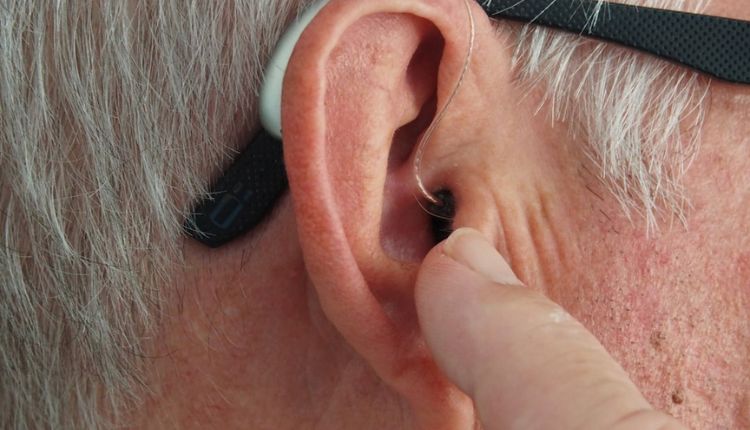If you’ve noticed that conversations are getting harder to follow, or you find yourself asking people to repeat themselves more often, you’re not alone. Hearing loss is a common part of life, and thankfully, there are solutions to help bring back the sounds you may be missing.
When looking into hearing aids, you’ll come across two main types: over-the-counter (OTC hearing aid) and prescription hearing aids. But what exactly is the difference between them? And how do you know which one is right for you?
What Are OTC Hearing Aids?
OTC hearing aids are an exciting option for adults with mild to moderate hearing loss. They became widely available after the FDA approved them for sale without a prescription in 2022, making it easier for people to take charge of their own hearing health.
These devices are designed for convenience, allowing you to purchase them online, at drugstores, and even at some big-box retailers. You don’t need to see an audiologist or get a hearing test before buying them—just pick the model that works best for you and start using it right away.
Many OTC hearing aids come with customizable settings, allowing you to adjust the volume and sound quality to fit your personal needs. Some even have smartphone apps that let you fine-tune them for different environments, like restaurants, outdoor spaces, or quiet rooms.
Aside from being easy to buy, OTC hearing aids are also more budget-friendly compared to prescription options. This makes them a great choice for those who want to improve their hearing without making a major financial commitment.
What About Prescription Hearing Aids?
Prescription hearing aids, on the other hand, are custom-fitted and programmed specifically for your unique hearing loss. To get one, you’ll need to visit an audiologist for a professional hearing test. They’ll assess your hearing ability, determine the level of amplification you need, and help you choose the right device.
One of the biggest advantages of prescription hearing aids is that they are tailored to your ears and hearing profile. Audiologists can make precise adjustments to ensure you’re getting the best sound quality possible. This is especially helpful for those with more significant hearing loss or more complex hearing needs.
Prescription hearing aids also offer a wide range of advanced features, including noise reduction, directional microphones, and even artificial intelligence that adapts to different listening environments. Some models can even be connected to your smartphone, TV, or other devices via Bluetooth for a seamless audio experience.
Because they are fitted by a professional, prescription hearing aids also come with ongoing support. If you ever need adjustments, troubleshooting, or a check-up, your audiologist is there to help.
Which One Is Right for You?
Deciding between OTC and prescription hearing aids depends on a few key factors, like your level of hearing loss, your budget, and how much customization you want
If you have mild to moderate hearing loss, OTC hearing aids can be a fantastic solution. They’re easy to access, simple to use, and can help you hear conversations and everyday sounds more clearly. Many people find that OTC devices give them the boost they need without requiring a visit to a specialist.
If your hearing loss is more moderate to severe, or if you find that an OTC device isn’t meeting your needs, a prescription hearing aid might be the better choice. The professional customization and higher level of amplification can make a big difference for those who need more powerful hearing support.
A New Era of Hearing Care
The introduction of OTC hearing aids has changed the game for many people. In the past, getting a hearing aid required multiple appointments and a significant financial investment. Now, for those with mild to moderate hearing loss, hearing improvement is just a store visit or an online purchase away.
At the same time, prescription hearing aids continue to be the best option for those who need a more tailored approach. They offer advanced technology, professional adjustments, and long-term support from a hearing specialist. Whichever option you choose, the most important thing is taking that first step toward better hearing. Conversations, music, laughter, and all the little sounds that make life richer are worth it. So, whether you’re exploring OTC hearing aids or considering a prescription option, know that help is available—and better hearing is within reach.

